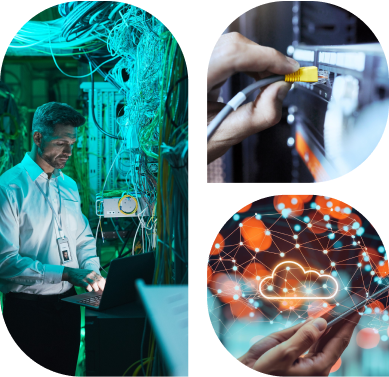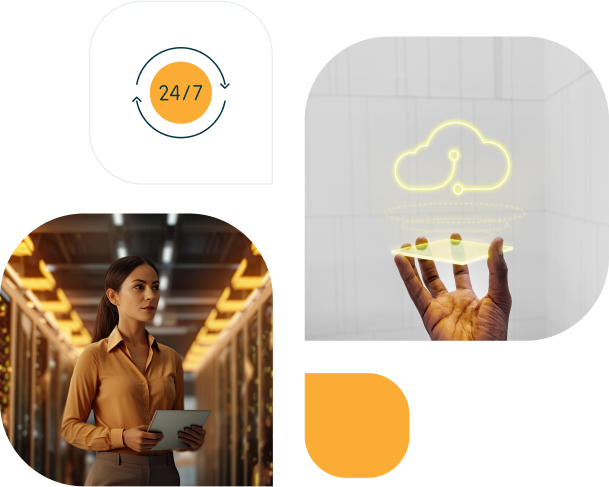Managed Cloud Solutions
A technology services firm specializing in Cloud Native, Data Science, IoT solutions, and Custom Development, with deep industry expertise.
Strategic Cloud Planning
Tailored Cloud Strategies
Collaborating closely, we craft a strong cloud strategy and architecture. Evaluating your setup, we identify enhancements and design a scalable solution tailored to your needs.
Monitoring
Streamlined alerting system employing ML-driven rules for swift issue resolution. Our NOC team focuses on rapid response while we ensure 24/7 monitoring and playbooks for precise issue identification and resolution.
Process
- 01
Discovery and Strategy Development
- 02
Deployment, Monitoring and Management
- 03
Optimization and Cost Management
- 04
Security, Compliance and Disaster Recovery Planning
- 05
Continuous Improvement

Cost Management And Resource Optimization
Optimize resource performance and utilization for enhanced efficiency and cost-effectiveness, ensuring optimal performance across all aspects of your infrastructure
Optimize resource performance and utilization for enhanced efficiency and cost-effectiveness, ensuring optimal performance across all aspects of your infrastructure
Cloud Migration, Backup and DR

 Cloud Migration
Cloud Migration
Seamlessly transition workloads, apps, and data to the cloud. Strategize, secure, redesign, and validate for a successful migration
 Back Up
Back Up
Securely duplicate data to prevent loss or corruption. Establish policies, select solutions, verify, and fortify for enhanced security.
 Disaster Recovery
Disaster Recovery
Efficiently recover systems and data post-disruption. Define RPO/RTO, select solutions, devise plans, validate, and fortify for optimal security.
 Customized functionality
Customized functionality
Customized functionality in multi-cloud infrastructure management is essential for tailoring solutions that meet unique organizational needs.

Expert Managed Cloud Services
Cloud Solutions
From setup and optimization to security and maintenance, we ensure seamless operations while you focus on driving business growth.
Managed Cloud Security
With proactive threat monitoring, real-time response, and compliance assurance, we safeguard your data and applications, allowing you to operate in the cloud with confidence.
Performance-Driven
Maximize performance, scalability, and cost-effectiveness with our expert infrastructure tuning and resource optimization
Let's Build Your Digital Future Together!
Unlock the full potential of cloud technology while leaving the complexities of management to us. Our Managed Cloud Services provide comprehensive support, maintenance, and optimization, ensuring your cloud infrastructure operates seamlessly and efficiently.




